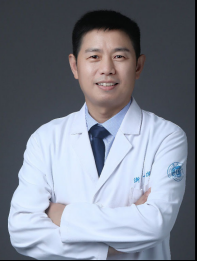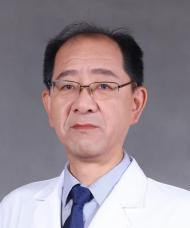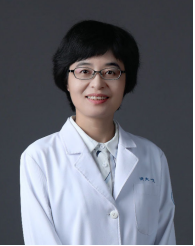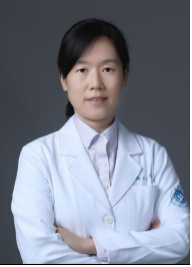Yaohui Ma
Surgical Director, DBS Program
Dr. Ma specialized in endoscopic minimally invasive surgical treatment of brain and spinal cord tumors; minimally invasive surgical treatment of functional diseases such as refractory epilepsy.

The Parkinson’s Disease and Movement Disorders Fellowship Program at The First Affiliated Hospital, Zhejiang University School of Medicine aims to provide a comprehensive training environment for candidates to pursue advanced training in the diagnosis and treatment of Parkinson's disease and other movement disorders.
The program is designed to enhance the clinical and research skills of fellows, preparing them for successful academic careers in this field. This program aims to equip healthcare professionals with the latest knowledge, skills, and techniques to enhance patient care and contribute to the advancement of clinical practice and research.
As a trainee in our program, your responsibilities will increase with your experience, capability, and performance. You will become highly skilled in the multi-disciplinary management of patients undergoing DBS surgery, and gain extensive experience with the clinical and research tools needed for a successful academic career in this field.
1. Exposure to a wide range of clinical assessments and treatments for Parkinson's disease and movement disorders.
2. Learning about and performing botulinum toxin injections for dystonia in a one-on-one setting with our neurologist.
3. Learning about and performing DBS surgeries in a one-on-one setting with our neurosurgeons.
4. Having direct access to faculty members who are committed to teaching and facilitating the growth of medical knowledge in the field of neurosurgery.
5. Participating in daily rounds as part of a small team working with one staff neurosurgeon.
6. Outstanding research opportunities and the ability to complete clinical research projects during the training rotations.
7. A strong didactic training program that includes weekly Grand Rounds, case conferences, and journal clubs.
The goal of our program is to prepare trainees to achieve excellence in the multidisciplinary clinical care of patients with movement disorders and other neurological conditions treated with DBS. Through exposure to a range of investigators engaged in diverse clinical, translational, and basic research in neurosurgery, we also aim to provide our advanced trainees a strong foundation in clinical investigation to launch them into successful careers in academic medicine.
The program provides a full-time, 2-week to 6-week training experience. In special circumstances, arrangements can be made for other lengths of training depending on your needs and interests.
• Fellows: Qualified applicants for the DBS Fellowship must have completed a neurosurgery residency program at an accredited institution.
• Residents: To be eligible for the DBS residency, you must have successfully completed a board-approved program in neurosurgery.
• Students:
1. Must be a final-year medical student when you are scheduled to participate in the rotation.
2. Medical School Approval - Letter of good standing from the dean’s office of your medical school indicating you are in the final year with your expected graduation date, in good academic standing, and meet all requirements to complete an elective for academic credit.
Focus Areas & Subspecialties:
1. Movement disorders such as Parkinson's disease, essential tremor, and dystonia
2. Botulinum Toxin Injections for Dystonia
3. DBS surgery for psychiatric conditions (if applicable)
4. Neuropathic pain management with DBS
Skills:
1. Intraoperative neurophysiological monitoring
2. Stereotactic and functional neurosurgery techniques
3. Patient selection and management for DBS
4. Postoperative care and programming of DBS devices
Monday
1st Week: Introduction & Welcome, Program Overview and Objectives, Department Introduction
Weekly: MDT Conferences, Complicated Case Study
Weekly: Mentor One-On-One Training:
-Topics:
1. Symptomatology of Parkinson’s Disease and Other Movement Disorders
2. Diagnosis and Differential Diagnosis of PD and Other Movement Disorders
3. Preoperative Evaluation and Postoperative Programming for Surgical Treatment of Parkinson's Disease
4. Rehabilitation Therapy for Parkinson's Disease and Other Movement Disorders
5. Nursing Care for Parkinson's Disease and Other Movement Disorders.
Tuesday
Weekly: Outpatient Observation, Academic Lecture, Basic Surgical Skills Training
Biweekly: Research Training
-Major themes:
1. Introduction to Rating Scales Related to PD and Other Movement Disorders
2. Interpretation of Diagnostic Criteria and Treatment Guidelines for PD and Other Movement Disorders
3. Observation of Rating Scales for Parkinson's Disease and Other Movement Disorders
4. Interpretation and Teaching of Auxiliary Examinations for Parkinson's Disease and Other Movement Disorders, Including Cranial Ultrasound, Olfactory Testing, Transcranial Magnetic Stimulation, Gait Testing, and Ocular Motor Testing
Wednesday
Weekly: Clinical Rounds, Neurosurgery Observation, Case-Based Discussion, Teaching Rounds
Biweekly: Simulated Surgery Training
Weekly: Lectures
-Topics:
1. Multidisciplinary Management of Parkinson’s Disease and Other Movement Disorders
2. Collection and Management of Specimens such as Saliva, Body Fluids, and Cerebrospinal Fluid for Parkinson’s Disease and Other Movement Disorders
Thursday
Weekly: Surgical Skills Training:
1. Preoperative Evaluation, Postoperative Programming, and Comprehensive Postoperative Management of DBS for PD and Other Movement Disorders
2. Demonstrations of Injections for Blepharospasm, Facial Myokymia, and Tic Disorders
3. Demonstrations of Botulinum Toxin Injections for Dystonia.
Biweekly: Surgery hands-on
Friday
Weekly: Journal Club, Clinical Rounds, Clinical Skills Training, Special Task Training
Last Week: Wrap-Up & Reflection, Participant Presentations or Discussion of Key Takeaways, Feedback Session
After each rotation, each faculty member evaluates each trainee according to core competencies. Faculty members meet with trainees individually for verbal feedback and evaluation. Technical competence is evaluated through specifically designed evaluation forms and a semiannual skills assessment program.

Surgical Director, DBS Program
Dr. Ma specialized in endoscopic minimally invasive surgical treatment of brain and spinal cord tumors; minimally invasive surgical treatment of functional diseases such as refractory epilepsy.

Surgical Director, DBS Program
Dr. Wang specializes in brain tumors; epilepsy, trigeminal neuralgia, hemifacial spasm; spinal canal tumors; neuroregulation of Parkinson's and motor disorders, post-stroke hemiplegia.

Neurology Director, DBS Program
Dr. Yuan specialized in the clinical diagnosis and treatment of Parkinson's disease, neurodegenerative disease and cerebrovascular disease.

Neurology Director, DBS Program
Dr. Tang specialized at the diagnosis and treatment of dystonia and the treatment of spasticity, headache and refractory neuralgia.
The program is free of charge.